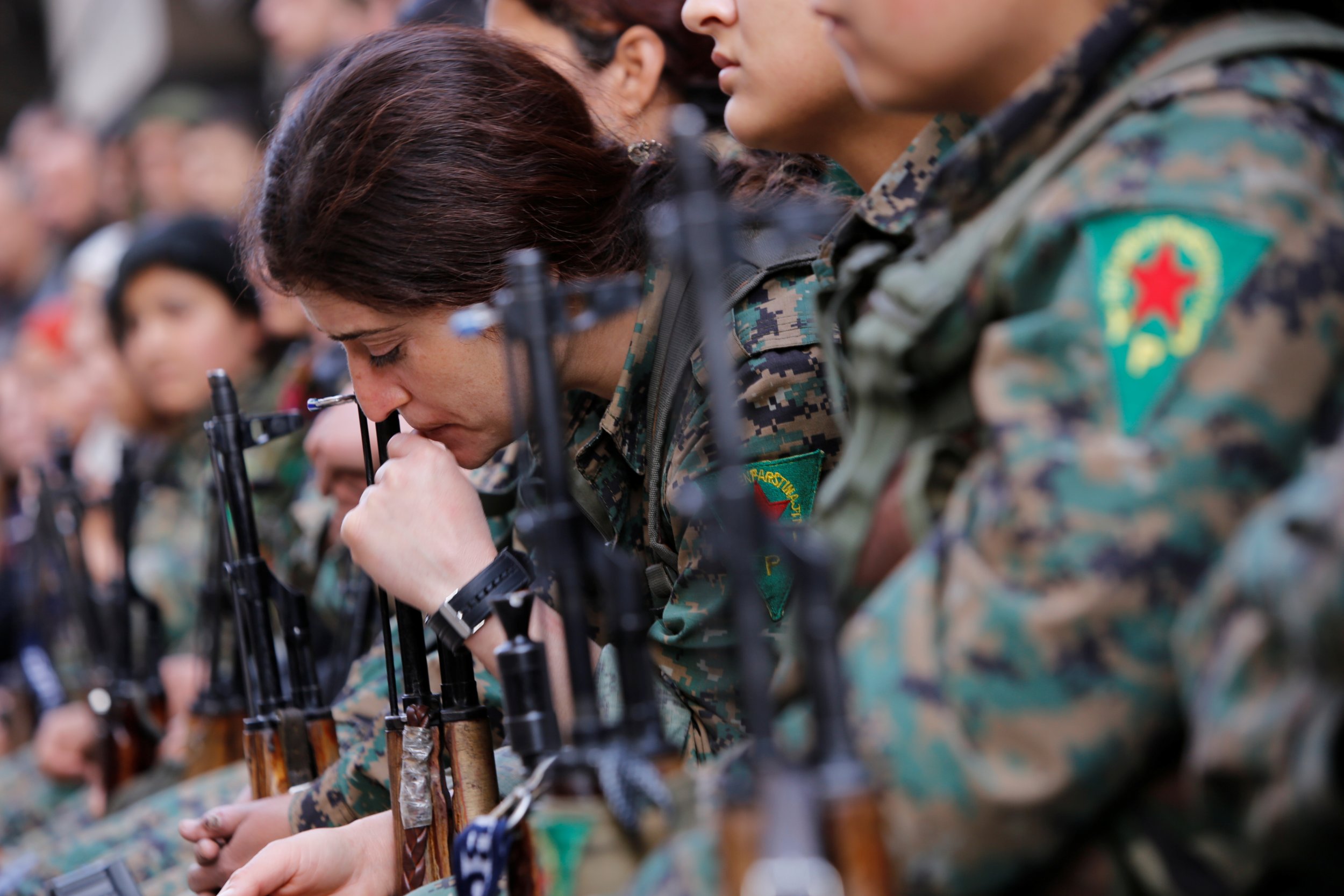
Fighters supportive of the Syrian government, an ally of Russia and Iran, have entered a northwestern enclave of Kurdish control to help the U.S.-sponsored ethnic minority fend off a Turkish invasion. Both Washington and Moscow have attempted to discourage their partners from entering the battle, but local forces have so far ignored the leading international powers.
Following sporadic violence last week between forces fighting on behalf of Syrian President Bashar al-Assad and the Kurd-dominated, Pentagon-created Syrian Democratic Forces (SDF), the state-run Syrian Arab News Agency reported Tuesday that pro-Syrian government "popular forces" have arrived in Afrin to defend it against an offensive by Turkish and rebel fighters seeking to dislodge Kurdish control. Both the Syrian government and Kurdish leadership have accused Turkey of sponsoring jihadi groups such as the Islamic State militant group (ISIS) to further Ankara's goals in Syria.
Related: Syria and Assad will fight alongside Kurds as battle rages against Turkey in Afrin
"After a month of the legendary resistance of our forces against the invading Turkish army and the terrorist organizations allied to it from the Nusra Front, ISIS and others, and incurring heavy losses on the invasion's equipment and ordnance, our forces considered inviting the Syrian government and its army to carry out its duties to participate in the defense of Afrin and protect the Syrian borders against this brutal invasion," Kurdish People's Protection Units, or YPG, spokesman Nouri Mahmoud said in a statement sent to Newsweek.
"Therefore, the Syrian government responded to the invitation and answered the call of duty to send military units today on Tuesday, February 20, 2018, to focus on the border and participate in defending the unity of Syrian territory and its borders," it added.

Lebanese media outlet Al Mayadeen reported Tuesday that the popular forces had come from the towns of Nabel and Al-Zahra to defend civilians against Turkish aggression, which included a Turkish aerial bombing that would be blocked by Syrian air defenses.
The Syrian Observatory for Human Rights, a U.K.-based monitor supportive of the Syrian opposition, also reported Tuesday the movement of dozens of Syrian troops and their allies as well as military vehicles and equipment to Afrin based on a truce established Monday between the Syrian government and Kurdish leadership. The Syrian government had previously agreed to allow Kurdish fighters to move freely through government territory to defend Afrin.
Turkey launched its so-called "Operation Olive Branch" last month to oust Kurdish groups, such as the YPG, from the border region of Afrin in the Syrian province of Aleppo. The YPG has formed the main component of the U.S.'s main partner in Syria, the SDF, but Turkey has accused the Kurdish group of being an associate of the Kurdistan Workers' Party, considered a terrorist organization in Ankara for its decades-long campaign of nationalist violence in Turkey.
The Turkish attack, which was supported by the rebel Free Syrian Army, was criticized by the U.S. and Russia as well as their respective partners, the SDF and the Syrian government, but neither international power has said it would assist its local ally in blocking the offensive. The U.S.-led coalition against ISIS has emphasized it would only sponsor SDF fighters battling the jihadis in the eastern Syrian province of Deir Ezzor, where both the SDF and the Syrian military were battling the last of the militants in separate campaigns.
Meanwhile, Russian Foreign Minister Sergei Lavrov told the state-run Interfax News Agency on Tuesday that Assad and his Turkish counterpart, Recep Tayyip Erdogan, could only solve their differences over Afrin through direct dialogue.
As well as being a fellow member of the NATO Western military alliance, the U.S. has considered Turkey a leading anti-Assad partner in Syria. As the 2011 uprising against Assad splintered into various competing insurgent and jihadi groups, the U.S. focused its support on the SDF, infuriating Turkey. Turkey has since sought closer cooperation with pro-Assad Russia and Iran, making Ankara a critical part of both countries' plans in Syria.

The YPG has no formal alliance with the Syrian military or its various allied militias, which included a number of Iran-backed Shiite Muslim paramilitaries, but both factions opposed jihadi groups such as ISIS and rebel organizations aligned with Turkey. Kurdish groups, which have decried cultural oppression under Assad, have called for greater autonomy across northern Syria. While the government has not agreed to more autonomy, it has previously hinted at the possibility for talks.
In the most serious clashes between the U.S.-led coalition and pro-Syrian government forces yet, up to 100 fighters supportive of Assad, including Russian nationals, were killed in airstrikes last week after the U.S.-led coalition claimed they attacked SDF forces near oil fields in the eastern province of Deir Ezzor. Russia and Syria disputed the U.S. account, calling their mutual rival the aggressor. Days later, a U.S. drone destroyed a Russian-built tank driven by pro-Syrian government forces the U.S. again claimed had first approached and attacked the SDF in Deir Ezzor.
Uncommon Knowledge
Newsweek is committed to challenging conventional wisdom and finding connections in the search for common ground.
Newsweek is committed to challenging conventional wisdom and finding connections in the search for common ground.
About the writer
Based in his hometown of Staten Island, New York City, Tom O'Connor is an award-winning Senior Writer of Foreign Policy ... Read more





